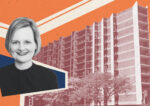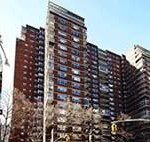Let me know if this sounds familiar:
Privately owned multifamily buildings constructed decades ago in New York City are falling apart because residents are not paying enough each month to maintain them.
Rings a bell, doesn’t it?
Here’s more:
Lawmakers recognize the problem and are springing into action. To bring these buildings into a state of good repair while keeping them affordable for hardworking New Yorkers, city and state officials are coming to the rescue with tens of millions of taxpayer dollars.
“No way,” you say. “That is not happening. They haven’t done squat for rent-stabilized buildings!”
Indeed they haven’t. But I was not referring to rent-stabilized buildings, which Albany has left to crumble by starving them of revenue while their already-high property taxes somehow keep rising.
Rather, there is another kind of property that, in stark contrast, occupies a special place in lawmakers’ hearts: Mitchell-Lama co-ops.
Since Gov. Hochul took office, she has showered Mitchell-Lamas across the state with nearly $500 million. That’s $4,762 per unit, on average, but some have received much more. One agency alone has gifted $265 million to 24,000 Mitchell-Lama apartments — more than $11,000 apiece.
Had the governor doled out money at the same rate to New York City’s 966,000 rent-stabilized units, the total would have come to $4.6 billion.
In the spring, Hochul and state legislators passed a budget that cut taxes for Mitchell-Lamas in half, saving them $50 million a year. But that didn’t apply to an “Article V” co-op known as Penn South.
The Manhattan property’s shareholders have kept their maintenance fees too low to actually take care of the building. That might sound harsh, because some residents — we don’t know how many — probably can’t afford to pay more.
But housing has to be paid for. It doesn’t fix itself, heat itself, paint itself or insure itself. So the state is letting the city give Penn South a $2 million annual tax cut.
“I commend the governor for recognizing the sky-high costs to operate housing and her work to help Mitchell Lama buildings across the city from choosing between deferred maintenance or double-digit rate increases,” Kenny Burgos, CEO of the New York Apartment Association, told The Real Deal. “I can only hope the same approach and attention is offered to the nearly 2 million residents living in rent-stabilized housing.”
Read that last sentence closely and you might pick up a hint of sarcasm. Burgos knows the state has barely lifted a finger for his members’ buildings since essentially freezing their rents in 2019.
Mitchell-Lamas are often hailed as a triumph of Albany, which established the middle-class co-ops in 1955. But as it turned out, they were not sustainable. That’s why city and state lawmakers have been running from building to building, plugging holes in the dike with tax dollars from everyone else.
These cash infusions are always portrayed in press releases and fawning media coverage as acts of altruism by elected officials, rather than as bailouts of buildings whose shareholders deferred maintenance so they could save money — in some cases out of necessity, in others to buy a condo in Florida.
To be fair, the midcentury legislators who crafted the program, Manhattan Sen. MacNeil Mitchell and Brooklyn Assembly member Aldred Lama, gave these co-ops the option to eventually become market-rate, which would allow them to pay their own bills. But when offered free money by the government to stay in the program, many take it.
Hochul was at it again Tuesday, summoning the media to Manhattan’s Penn South to watch her sign a bill from Sen. Brad Hoylman-Sigal and Assembly member Tony Simone to let the city slash its property taxes.
“Penn South faces rising operational costs, which threaten to impact building quality and future affordability for its residents,” Hochul’s press release said.
That is also true for rent-stabilized buildings, except that the rising costs only threaten building quality, not rents. But the state expects landlords to shoulder those costs, and if they can’t, there’s a fallback plan. It’s called foreclosure.
Read more

Financially strapped co-op escapes Mitchell-Lama with first-ever conversion

Millionaires exploiting Mitchell-Lama housing program: audit

City rescues struggling affordable co-op in Brooklyn Heights


